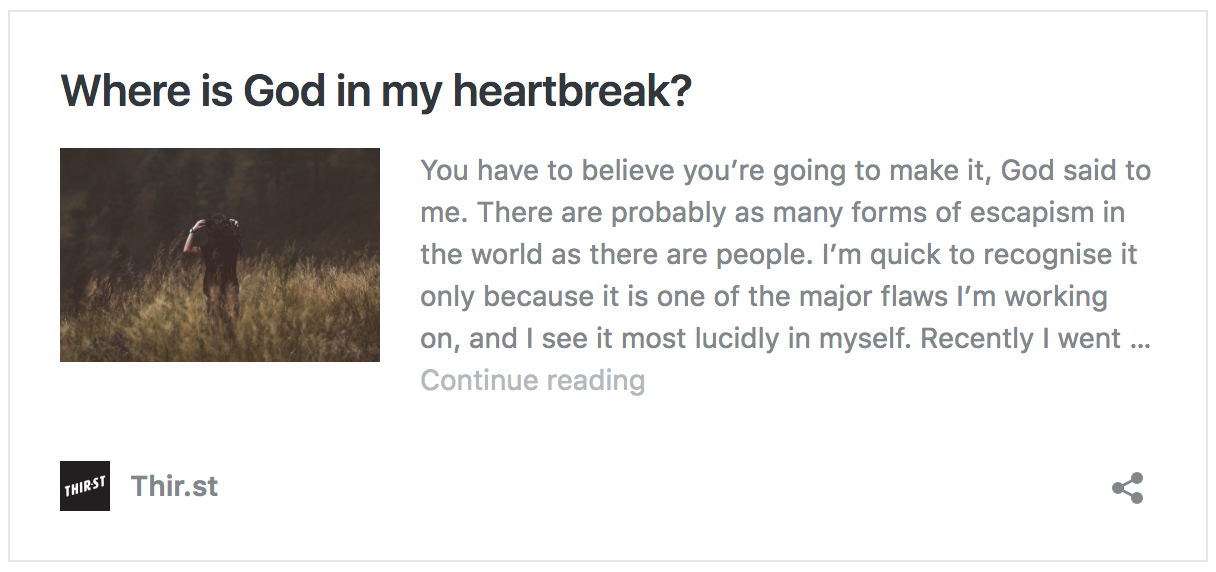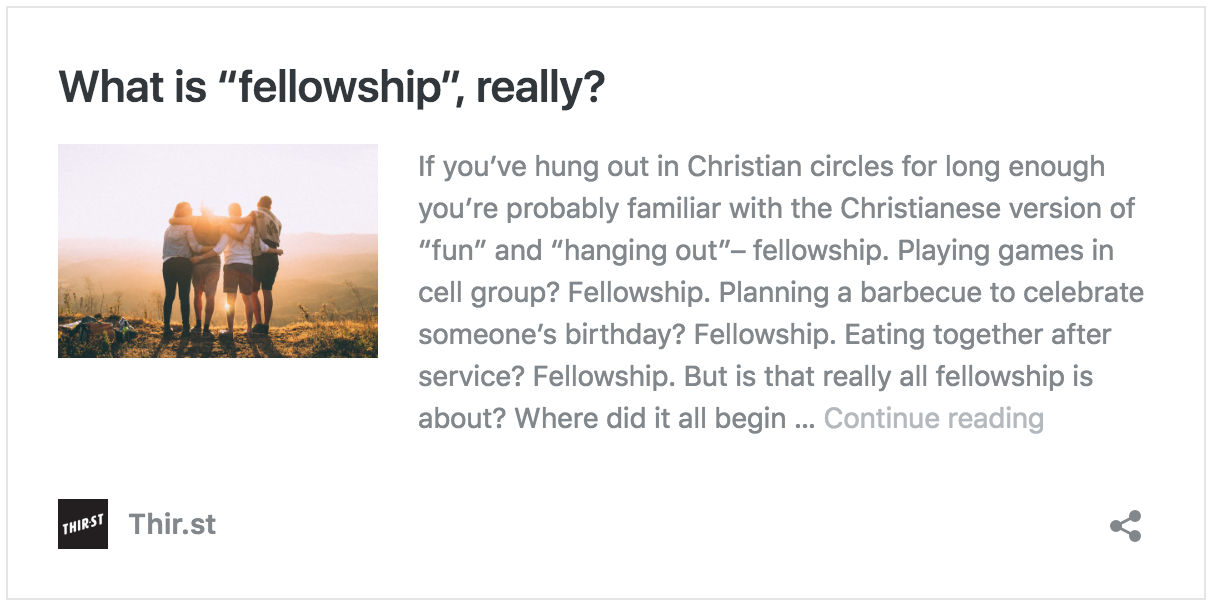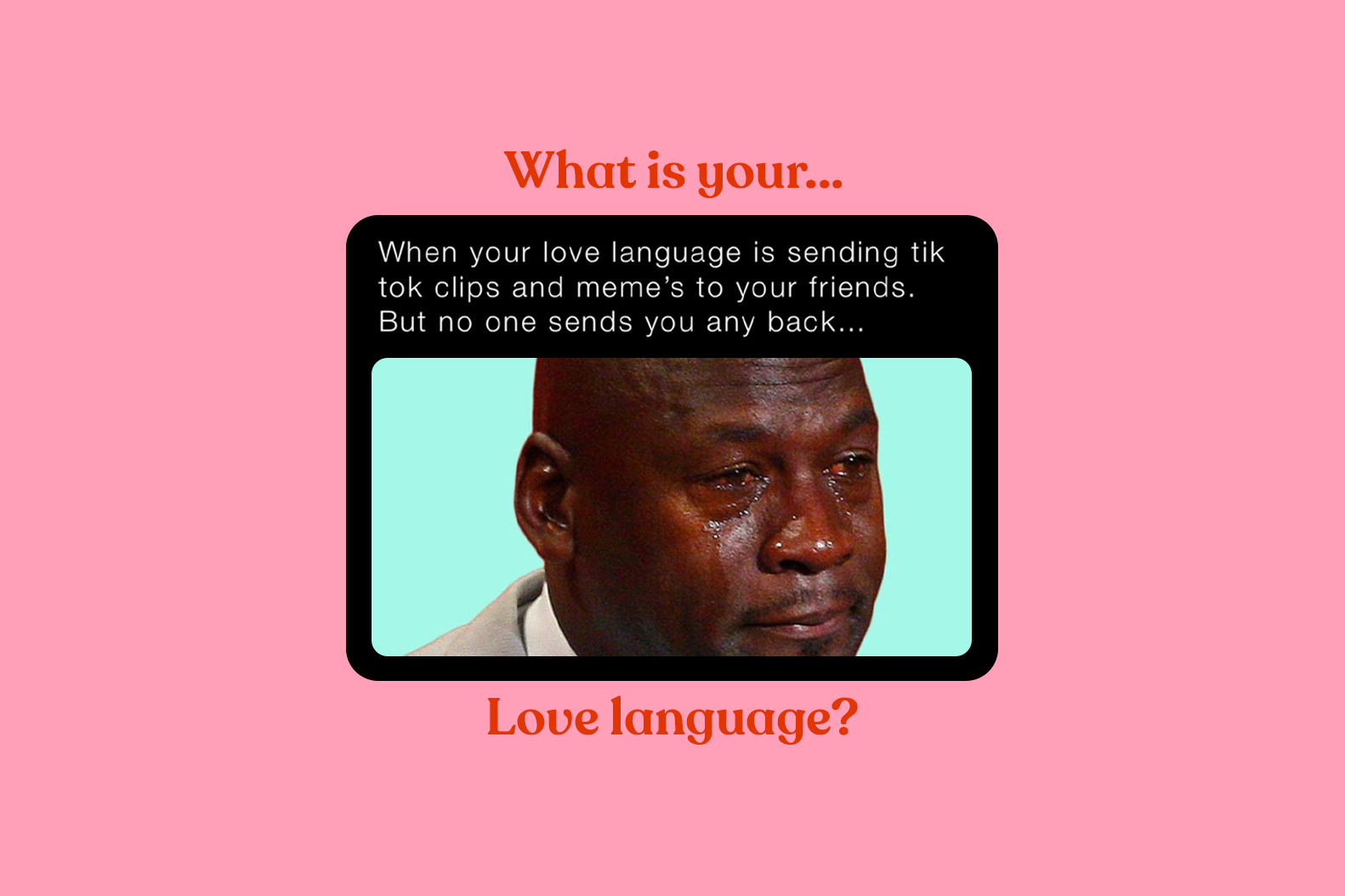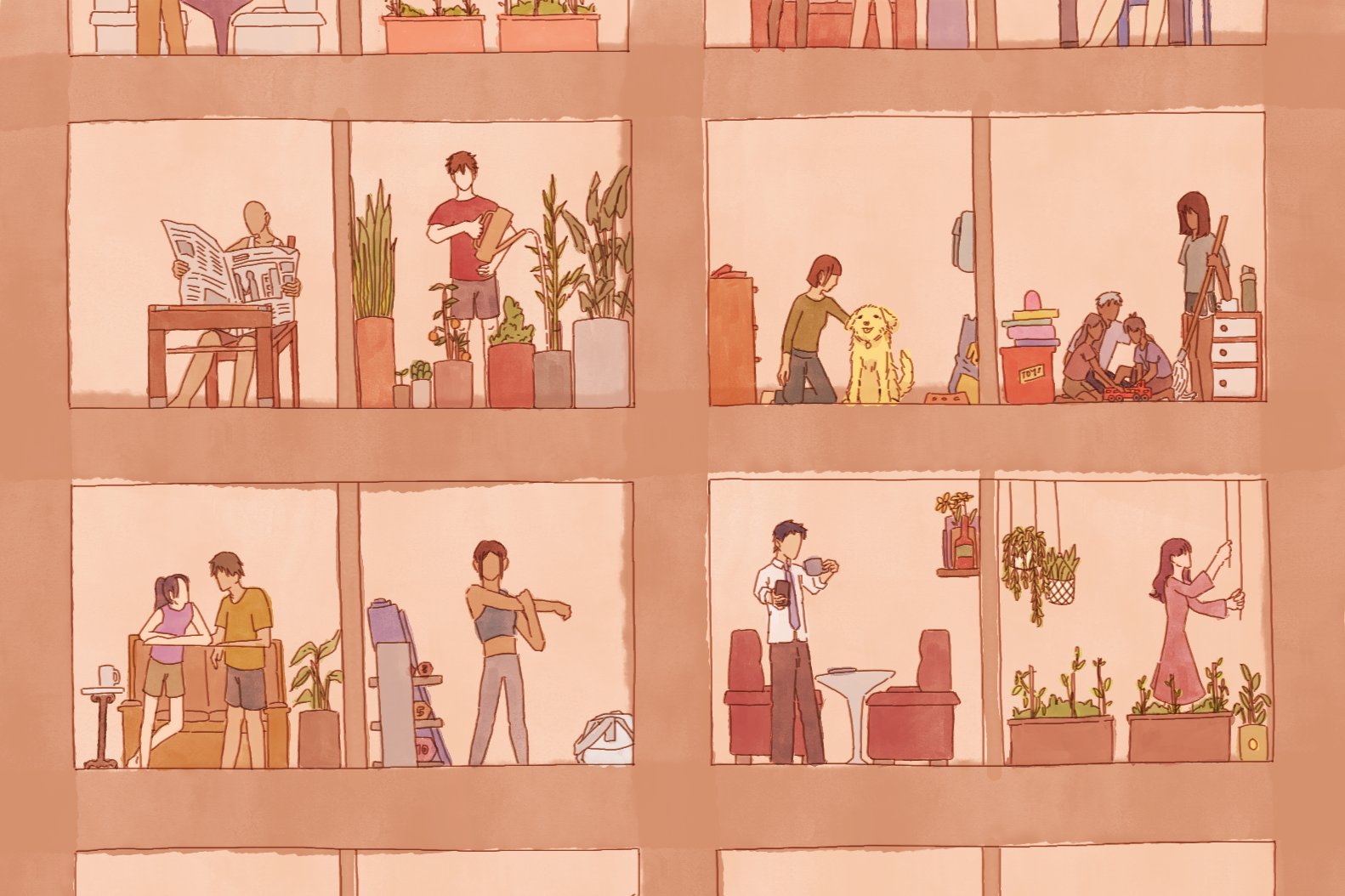My friend came to our breakfast meeting downcast. “I’m having a hard time,” she said. “How long does it take you to forgive someone?”
I stirred my tea and thought about it: “It might depend on the offence … and on my relationship with the person. I could probably forgive a small insult faster than a huge betrayal. And the more I trust the person, the easier it is for me to forgive him or her.”
My friend, frowning, shook her head. “Okay, I can understand the point about how big or small the wrong is, but the more you trust someone, the more it hurts if they fail or disappoint you, right?”
I acknowledged that this could be true. “But if I really trust them, I’d also know they have my welfare at heart and wouldn’t hurt me intentionally.”
“Sometimes that’s not much comfort,” she said candidly. “It’s not that I’m out to blame anyone. I get that Christians aren’t perfect, but when someone you trusted isn’t who you believed them to be, you’re still left to deal with the pain. I’m not sure I want to see the person every week, let alone trust them again.”
She suddenly looked like she’d lost her appetite. And I knew how she felt.
WHAT THE WORLD SAYS
When I thought more about our conversation, I realised my replies had been somewhat superficial.
There is something hollow, something like positive self-talk or pop psychology, about merely excusing the fault (“It was only a small thing”), the intention (“I didn’t mean it; don’t take it personally”) or human limitations (“Nobody’s perfect”).
Some other common ways of dealing with hurtful situations are reflected in sayings like “Don’t sweat the small stuff”, “Time heals all wounds” or “Manage your expectations”. Perhaps you’ve come across more.

I’m not saying that all positive self-talk is useless – it has often given me perspective that I’ve lacked – but if all we had was the world’s wisdom, our focus would remain on analysing our disappointments and getting by on our own strength.
Though we brush off the “small stuff”, deep and damaging wrongs that happen in Christian communities can scar us permanently: Neglect, bullying, gossip, malicious attacks, jealous competition, racial or class prejudice, emotional abuse, sexual harassment or abuse, adultery … the list goes on.
Sin hurts people, and there really isn’t any excuse for causing pain in that way, especially to the people we’re supposed to love and protect, like our brothers and sisters in Christ.
IT’S NOT OKAY
The most helpful conversation I’ve ever had about a deep hurt was when my wise friend Sarah listened to my experiences and then said, “Wow, I’m sorry you had to go through that. It’s not okay for someone to do that.”
Sarah knew that I knew the Bible verses about forgiveness and that I would try to let my hurts go. But in caring for me and acknowledging the wrong that had been done, she reflected to me the fact that we have a God who upholds justice, hates sin, and defends the weak and defenceless.
Why was it so important for me to see these aspects of God’s character clearly?
Well, my knee-jerk reaction to feeling hurt is getting defensive, severing the hurtful relationship, retaliating, or taking matters into my own hands despite my limited knowledge and ability. Hurt people, so the saying goes, hurt people. What hurt people need first is a refuge, a safe place.
Although Sarah had no power or authority to fix things, her standing up for justice – “It’s not okay” – pointed me to the One who does right wrongs and does so with perfect knowledge and ability.
I remembered then that God, the Creator, whose power and understanding is limitless, “heals the brokenhearted and binds up their wounds”. The wicked will suffer His punishment some day, but as for me, I am safe with God (Psalm 147:2–6)!

WHERE DOES MY HOPE COME FROM?
Being honest with a trustworthy listener about my hurts and taking refuge and comfort in God’s righteousness were the first steps for me in letting go of disappointment.
It is natural, even commendable, to admire Christian brothers and sisters who are role models of faith and love: Paul encouraged the Corinthian Christians to follow his example, as he followed the example of Christ.
But we sometimes forget that our human heroes make mistakes and inevitably let us down. When Sarah helped point me back to God, I was able to ask myself if I was putting my hope in people more than in God.
Learning to see past even the strengths of our mentors and role models, and see the work of God’s Holy Spirit in them, frees us from idolising them.
The church exists to bring God’s love to His people, but the church should never replace God as our sure foundation.
In fact, it is God who makes our church relationships more than just social friendships. Jesus died for each of us, making every believer a part of His church. This means that every believer’s worth is in Jesus – no less, and no more.
Learning to see past even the strengths of our mentors and role models, and see the work of God’s Holy Spirit in them, frees us from idolising them. It also frees us to recognise their weaknesses and forgive them when they fail us.
FREEDOM IN CHRIST
How is it humanly possible to forgive great wrongs? Well, it isn’t! Justice would demand the payment of a suitably great price, such as the penalty of death for our rebellion against God. Yet our Father did the unthinkable:
“For what the law was powerless to do because it was weakened by the flesh, God did by sending his own Son in the likeness of sinful flesh to be a sin offering. And so he condemned sin in the flesh, in order that the righteous requirement of the law might be fully met in us, who do not live according to the flesh but according to the Spirit.” (Romans 8:3-4)
Jesus’ death in our place perfectly satisfied the demands of justice, releasing us from condemnation (Romans 8:1-2). But even more than that, this has been done for us so that we can now live according to the Spirit!
Paul goes on to share the awesome truth that our very nature has been changed. We are now God’s children, no longer governed by the need to sin but destined for eternal glory with Jesus.
Our Lord on the cross did the most humanly impossible thing ever: He pleaded the cause of his killers.
This transformation – a renewed self as I know God and become more like Him – is what enables us to forgive. We may not always feel enabled, but Christ in us is the reason that Paul said, “Bear with each other and forgive one another if any of you has a grievance against someone. Forgive as the Lord forgave you” (Colossians 3:10, 13).
Our Lord on the cross did the most humanly impossible thing ever: He pleaded the cause of his killers. He was not simply excusing them on grounds of diminished responsibility. In their rejection of him, he did not nurse his own hurts but lifted his eyes to the only One who could grant their greatest need – God’s forgiveness.
WHAT ABOUT THE WRONGDOER?
Are there situations in which the wrongdoer should be confronted? Absolutely.
Where God’s people sin in a Christian community, Jesus Himself commands that the wrong be addressed, first in private, but if the wrongdoer does not change, before one or more people to witness the confrontation.
Recently, a number of high-profile scandals surfaced, showing that as God’s church we have not done enough to protect the vulnerable and ensure that people are not repeatedly allowed to fall back into sinful ways. Church leaders must be prepared to step in and take action to stop sin (Matthew 18:15-17).
This action could take the form of treating the offender as an unbeliever. In treating him or her “as you would a pagan or a tax collector”, we are not necessarily to cut off all contact with the person. Instead, considering someone an unbeliever is to recognise and keep on offering the person their greatest need – the Gospel and a relationship with God through Jesus.
In Eugene Peterson’s rendition of verse 17, “If he won’t listen to the church, you’ll have to start over from scratch, confront him with the need for repentance, and offer again God’s forgiving love”.
That’s grace which doesn’t cover up wrongdoing but reveals sin, so that the sinner might repent and be reconciled to God.
It may be that most of our disappointments in the church are not as clear-cut as to require the discipline of authorities. Maybe someone brushed aside your opinion, or a clique made you feel unwelcome, or a cutting remark showed snobbery.
… we may never hear a longed-for apology or get complete closure, but we depend on the Spirit of God to keep on relating to and serving others.
But as we deal with strained or broken relationships, seeing Christ brings freedom from knee-jerk reactions.
In practice, this freedom could take a variety of paths: For example, getting together to explain your position (gently!) and restore friendship; maintaining different opinions on matters of style and preference but working together for the gospel’s sake; finding godly support (para-church or in the same church) and so on.
These are not mutually exclusive paths. All are humanly difficult – we may never hear a longed-for apology or get complete closure, but we depend on the Spirit of God to keep on relating to and serving others.

What or who in the church has hurt or disappointed you?
As followers of Jesus, we will certainly experience some of His suffering, perhaps even the pain of being betrayed or attacked by someone trusted.
But we are those who have known God’s forgiveness and continue to experience it on a daily basis. Because we are being renewed as we know God and become more like Him, we can ask God to free us from bitterness, grudge-bearing and score-keeping, to love Him and His people as He has loved us.
To answer my friend’s question again, in a different way, how long I take to forgive someone depends on how long it takes me to see Him clearly. Sometimes it is a long journey.
If you are struggling, may you be assured of your safety and worth, demonstrated to you on the cross. May you be strengthened by God’s Spirit, to show previously unthinkable love for your brothers and sisters in Christ.
As His people we can do much to helpfully point one another back to the God who deals with our hurts with righteousness as well as tender compassion, and who will one day right all wrongs.
This article was first published on YMI.today and is republished with permission.











